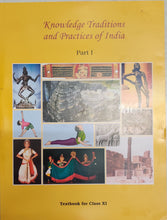Concept of the Course
The knowledge traditions of India are continuous and cumulative. They are textual and exegetical traditions in different areas of thought and experience: philosophy, medicine, grammar, architecture, geography, literary theory, polity and political economy, logic, astronomy and mathematics, military science, metallurgy, agriculture, mining and gemmology, and shipbuilding, among others. Concepts and technical vocabularies of these traditions are still a part of the thinking and the languages of modern India. The tradition is also non-egocentric. The 5th-century philosopher of language, Bhartrihari, states in his Vakyapadiya, a cardinal principle of knowledge constitution: "The intellect acquires critical acumen by familiarity with different traditions. How much does one really understand by merely following one's own reasoning only?" (Bhartrihari, Vakyapadiya, II.484). The traditions are therefore, intrinsically polycentric; Indian thinkers have constantly engaged in internal debate and dialogue and have also interacted with traditions outside India.
Aims and Objectives of the course:
Students will be able to:
-
get familiar with Indian thought in different disciplines.
-
get familiar with major Indian thinkers in different disciplines.
-
get familiar with the primary texts of Indian thought through an organized study of short extracts in translation of those texts.
-
develop a better appreciation and understanding of not only the Knowledge Traditions and Practices of India but also of many contemporary questions and issues that they handle in their course work in related disciplines.
-
enhance self awareness and self-esteem




